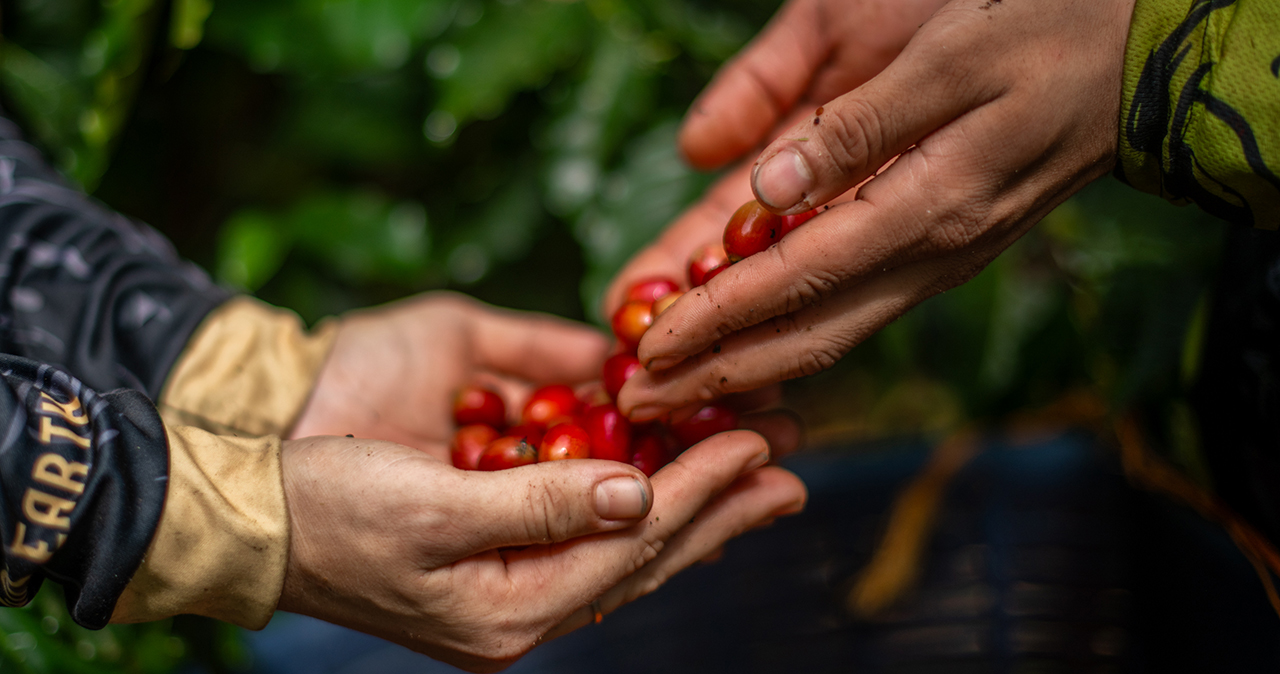For seven years, Tropical Silviculture Professor Victor Hugo Morales Peña has led research to evaluate the growth of Arabica coffee in the Costa Rican Caribbean, using a combination of tree shade and differentiated fertilization methods that have facilitated success in this non-traditional, low-altitude environment. This project has demonstrated that coffee cultivation at low altitudes can be successful, while still maintaining the high quality standard of Costa Rican coffee. This is especially true if genetically improved coffee lines are used in association with trees, and with the application of fertilization adapted to the physiological needs of the coffee plants and the environment of the Caribbean region of Costa Rica.
This research also focused on evaluating the adaptability of genetically improved coffee hybrids, obtained through cooperation with the Tropical Agricultural Research and Higher Education Center (CATIE), the Regional Cooperative Program for the Technological Development and Modernization of Coffee Cultivation (PROMECAFE), and the French Agricultural Research Center for International Development (CIRAD). The resulting coffee can now be tested by producers in Guatemala, El Salvador, Honduras, and Costa Rica. EARTH graduate Fernando Altmann (Class of 2006, Costa Rica), who is also a coffee producer and developer, provided support in terms of plant supply in order to achieve these results.
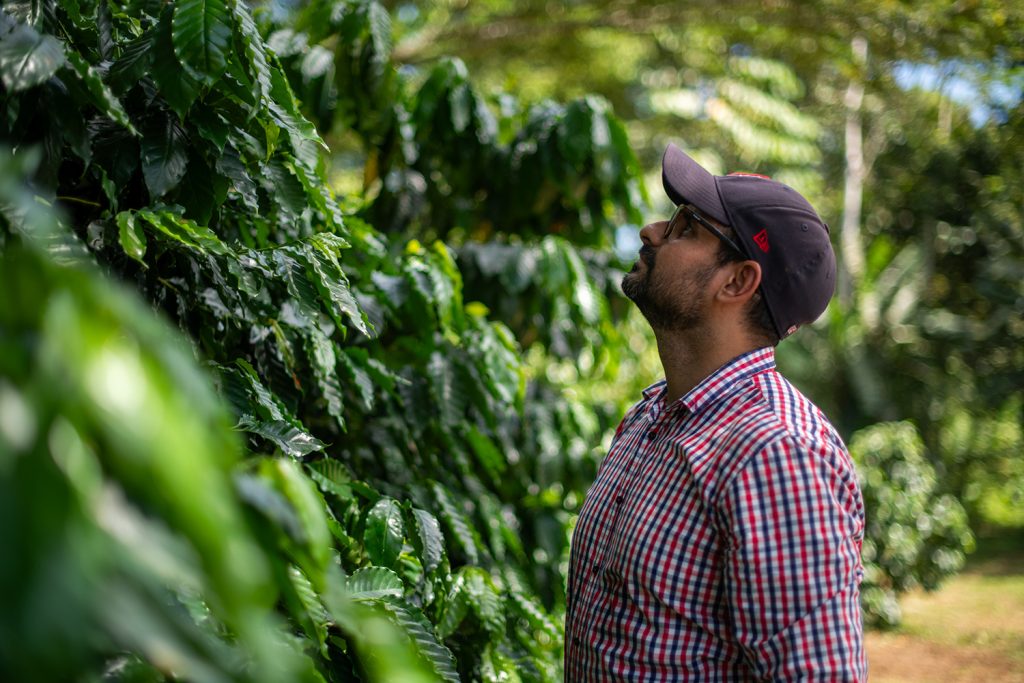
The production of this coffee, historically a key driver of the Costa Rican economy and many other countries in Latin America and Africa, has been impacted by climate change, which is reducing the availability of coffee-growing areas, typically cooler and dryer mountainous regions.
“This project has demonstrated that coffee cultivation in lowland areas can be productive and can maintain the high-quality of Costa Rican standards, especially when using genetically improved Arabica coffee,” explains Professor Victor.
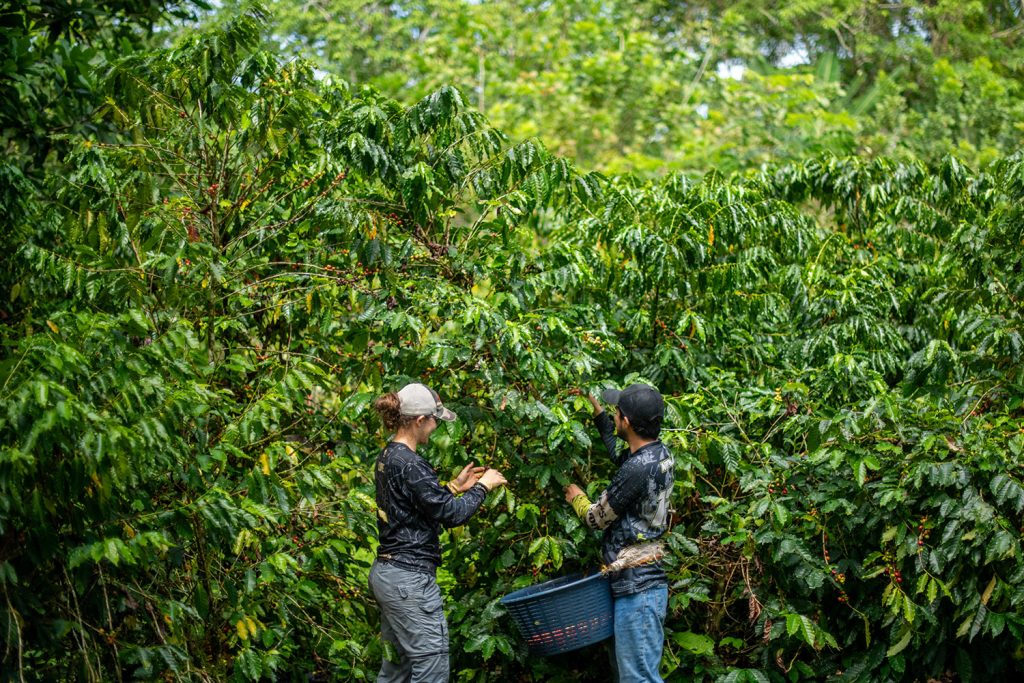
Some of the main results that make a remarkable difference for coffee plantations in non-traditional regions are:
- Better growth under shade: Coffee plants grown alongside trees showed greater height, lower mortality, and higher production of ripe fruits compared to plants exposed directly to sunlight.
- Increased production: The coffee-growing areas that combined with Espavel-Poró and Guapinol-Poró trees were the most productive of all, reaching up to 3.35 tons per hectare of ripe coffee fruit, significantly surpassing the yield of coffee in full sun. The recorded production is slightly higher than those reported in 2023 by the Costa Rican Coffee Institute (ICAFE) in the regions of Pérez Zeledón and Coto Brus.
- Effectiveness of fertilization: The best results were obtained by combining fertilization that considers the plant’s minimum requirements with the shade provided by the trees, demonstrating that this synergy is key to optimizing production in warm, low-altitude areas.
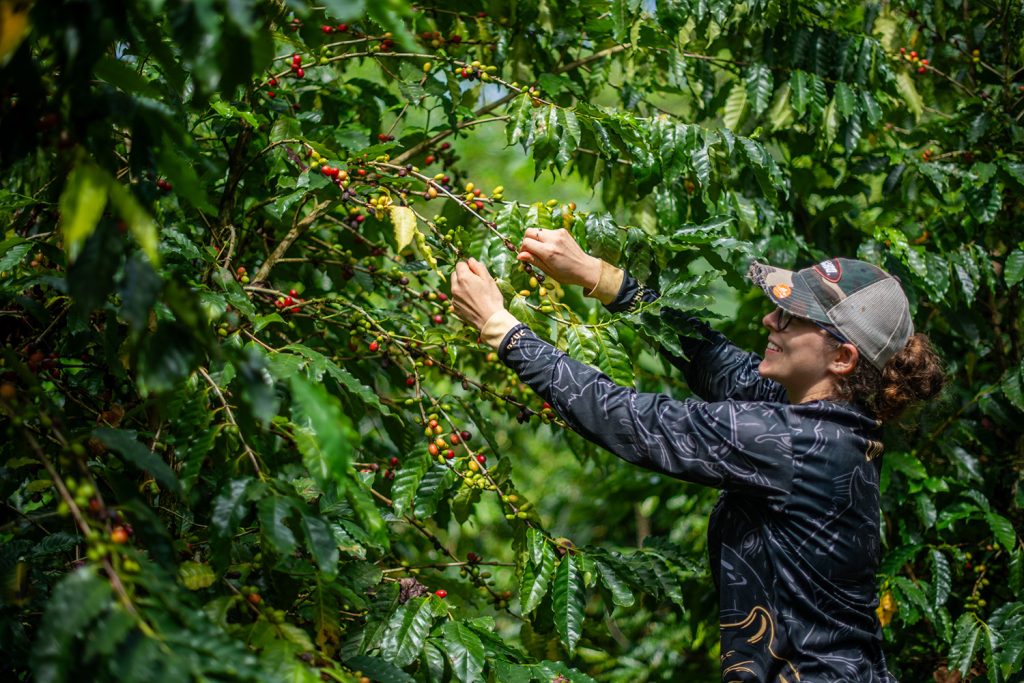
“Reviving coffee-growing zones in Costa Rica, including those like the Huetar Caribe region that ceased production over 20 years ago, is key to restoring economic activity in marginalized areas or those dominated by subsistence agriculture. After more than eight years of witnessing the benefits of coffee hybrids, we want to share this experience with other producers so they can be profitable and keep the industry active. These initiatives can have an enormous impact on local communities,” says Fernando.
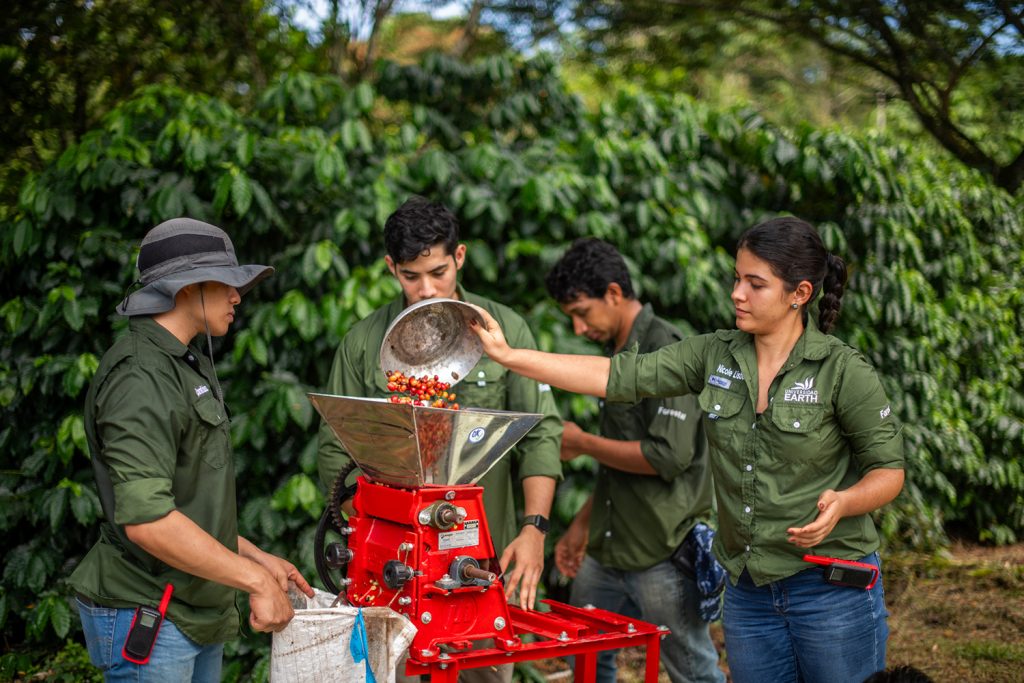
This project has been supported by EARTH’s Academic Program, and several students and graduates have carried out projects related to this research.
“Research of this kind, driven by EARTH’s faculty, is crucial for our students to integrate, experience, and generate new solutions to global challenges,” says Yanine Chan, Dean and Vice President of Academic Affairs at the University. “Our goal as a University is to prepare generations of leaders to ethically and sustainably transform food systems, protect and improve the quality of life of food producers, and regenerate our planet.”
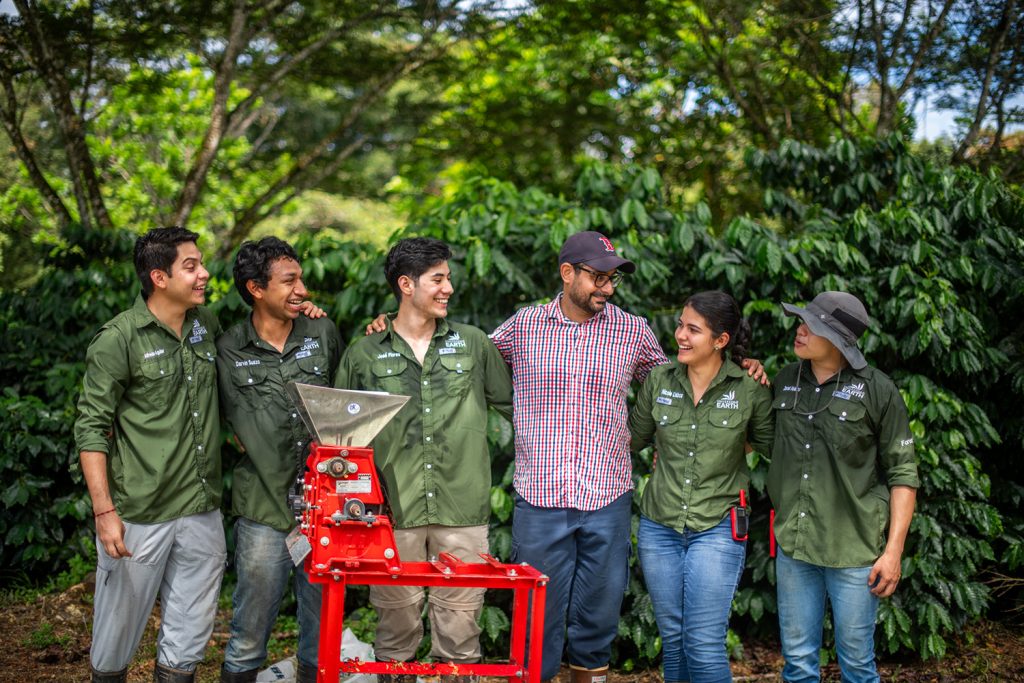
The next stage of this promising research will focus on defining the production level on a farm unit, and the resulting harvest will be key to exploring new processing techniques adapted to the specific conditions of the Costa Rican Caribbean.
Publication in MDPI
The full article detailing this research is available in the scientific journal Agriculture by MDPI, under the title “Growth and Productivity of Coffea arabica var. Esperanza L4A5 in Different Agroforestry Systems in the Caribbean Region of Costa Rica” (https://www.mdpi.com/2077-0472/14/10/1723).
